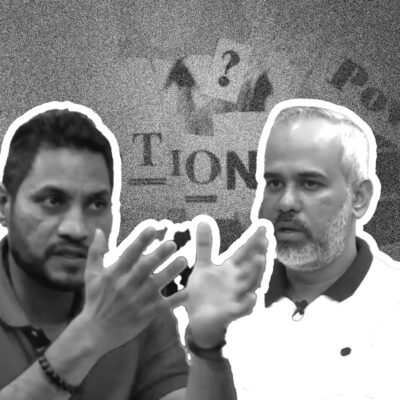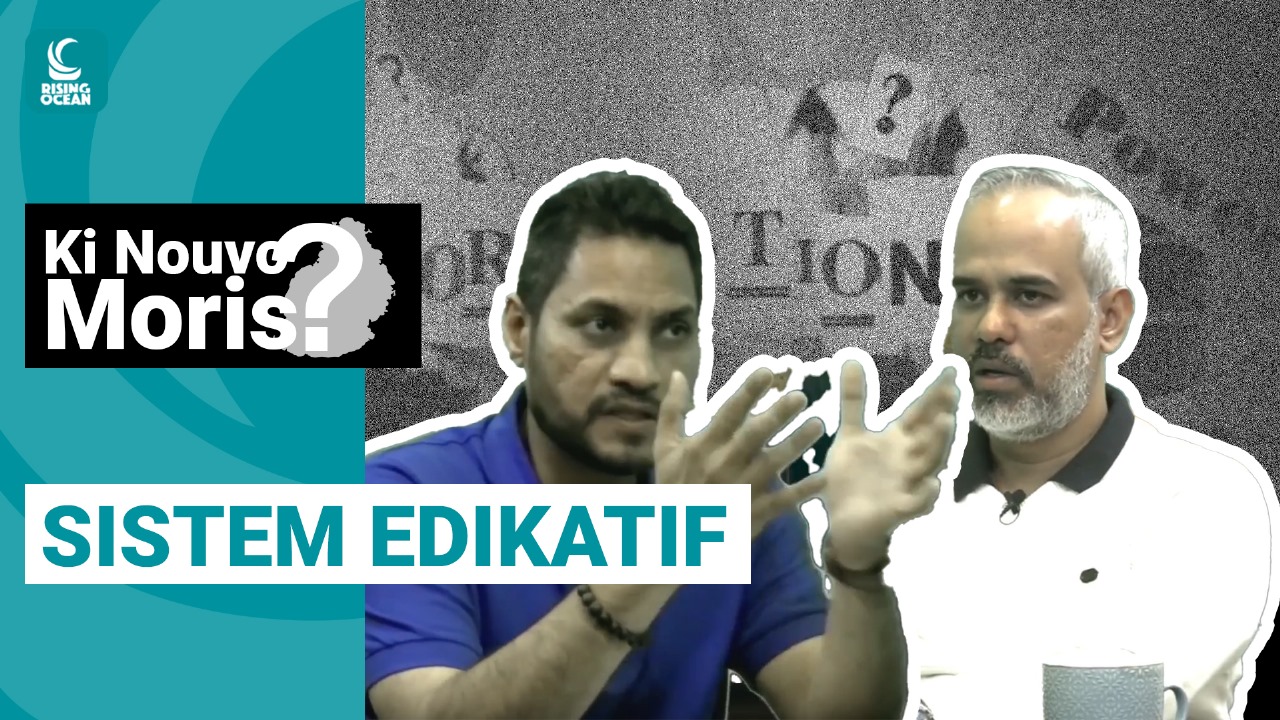« Education is the most powerful weapon which you can use to change the world. » -Nelson Mandela
Numerous conventions have recognized the right to education as a human right, including the International Covenant on Economic, Social, and Cultural Rights, which recognizes the right to free primary education for all and the obligation to make secondary education widely available and accessible to all. Although access to education from kindergarten to university in Mauritius has been free for some years, the education system is far from perfect. To elaborate on the gaps as well as the objective of the Union of Private Secondary Education Employees, the plateau ki nouvo moris had invited Arvind Bhojun.
An observation of the education system.
Arvind Bhojun believes that the 2024 educational system is advancing. Mauritius’s educational system is not so poor when compared to other nations’ systems. Like this, there has been significant advancement in our educational system when compared to the post-independence era. Arvind Bhojun notes that a significant portion of this year’s budget—roughly 21 billion Mauritius rupees—is allocated to the education sector. Even if there has been significant progress in terms of free education and infrastructure so that students can work well at school, the effectiveness of an education system is measured in terms of performance.
« We have two types of education systems: the comprehensive system and the competitive system. In Mauritius at the time, we had the CPE, which was a rat race for children, and the reform of the nine-year schooling has only delayed the competition, pushing it to a higher age. »
Indeed, we have not removed the elitism system because the competition starts in grade 5 with the modular exams and continues until the NCE exam, where, after his results, the student will go to an academy/star school.
“It is important to realize that education, although free, has become a commodity for those who can afford it, as they can pay for private lessons for their children.”
For trade unionists, it is important to provide in-service training for teachers. For several years, many UPSEE comrades have been asking for the introduction of continuous professional development.
« If you don’t give someone the tools and training, they need to execute their work well, you can’t expect to get a good result. ».
The objective of UPSEE.
The president of the trade union federation confides that many Mauritians do not know their rights, even if there are many organizations that are present to help them. UPSEE has taken a stand to make demands because the working conditions are not respected. Arvind Bhojun confides that the union in which he is active is committed to giving training and making workshops that will address several problems, such as school, discipleship, and so on.
« Our workshops are aimed at raising awareness among our members about their rights and therefore ensuring that there is no exploitation. »
Safety and the lives of workers in the education system.
Arvind Bhojun says the deadly fall of general attendant Kevin Ramlall is an eye-opener for abuses committed in secondary displays. He maintains that the deceased had no training to carry out this work, which, according to him, was in no way part of his responsibilities.
“After this tragedy, we had many complaints and cases reported on the abuses suffered by the staff of this institution. The institutions concerned must act quickly because these are state-subsidized schools.”.
Another point addressed by our guest concerns the implementation of a family protection scheme that will guarantee the financial security of families in the event of the death of a spouse. The fight for justice has only just begun. The president of UPSEE says that another march for Kevin Ramlall will be organized. « We cannot let the institutions subsidize with the people’s money operate without concrete results. »


